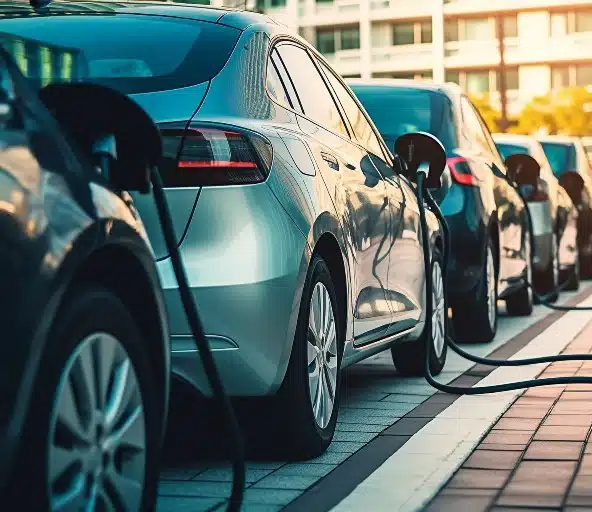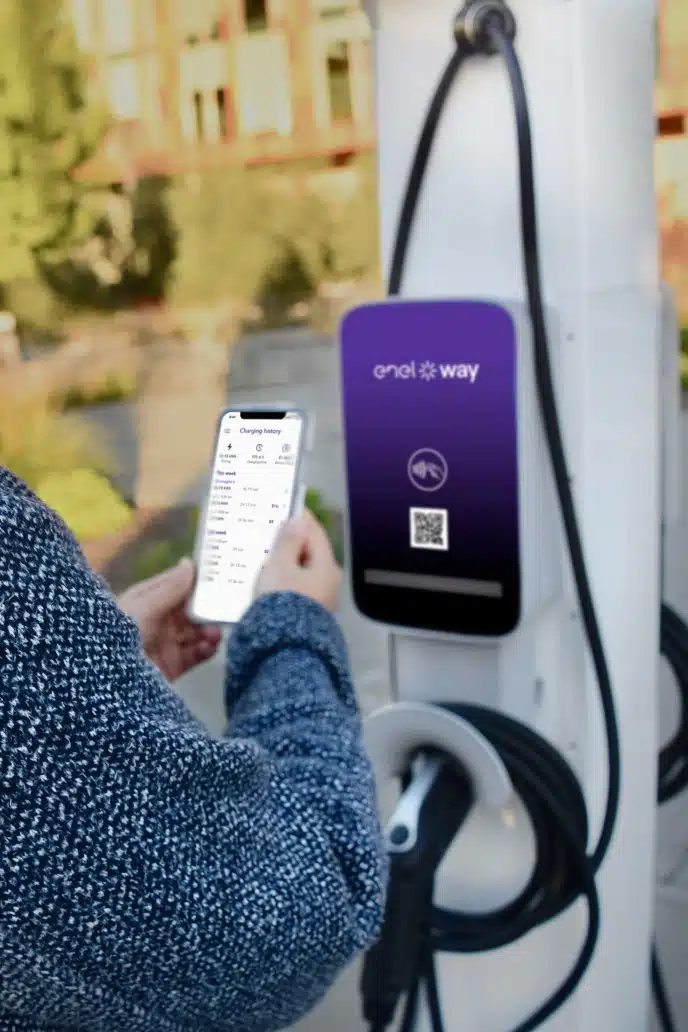EV Charge Cost
How Much Does It Cost to Charge an EV?
The cost to charge an electric vehicle (EV) can vary, but a typical example like a Tesla Model 3 may cost around $7.50 for a full charge at a rate of $0.15 per kWh. Federal and state incentives can further offset these costs, making EVs a financially smart choice in the long run.

Initial Thoughts
The electric vehicle (EV) industry has witnessed unprecedented growth in recent years, sparking a transformation in the way we look at transportation. A key question, however, that we get asked frequently at Chicago EV is: “How much does it cost to charge an EV?”
As the leading provider of commercial EV charging solutions in the Chicagoland area, we understand that understanding costs is vital for individuals and businesses alike. Through our preferred partnership with Enel X, we offer top-of-the-line EV chargers designed for efficiency and reliability. Here’s a comprehensive guide to help you better understand the costs associated with EV charging.

Factors Influencing EV Charging Cost
Understanding the cost of charging an electric vehicle (EV) involves more than just plugging it in and watching the meter run. Multiple variables come into play, each affecting the final amount you’ll see on your electricity bill or at a public charging station. In this section, we’ll delve into the key factors that influence EV charging costs, including electricity rates, charging speed, and vehicle battery capacity, to give you a well-rounded view of what you can expect to pay.
Electricity Rates
The cost of electricity is a major factor that influences how much you’ll spend on charging an EV. Rates can differ widely based on your location, the time of day, and your utility provider. For example, the cost per kilowatt-hour (kWh) in the U.S. generally ranges from $0.10 to $0.20. Some areas even offer discounted rates during off-peak hours, providing another avenue for cost savings.
Charging Speed
Charging speed also plays a crucial role in determining the cost of EV charging. There are essentially three types of chargers: Level 1, Level 2, and DC fast chargers. Level 1 chargers, often standard household plugs, offer 2-5 miles of range per hour. Level 2 chargers, such as the Enel X models we install, offer a significantly faster charge of 12-60 miles of range per hour. DC fast chargers are more powerful still, providing up to 1000 miles of range per hour under optimal conditions.
Vehicle Battery Capacity
The battery capacity of your electric vehicle will directly impact the cost to fully charge it. Electric vehicle models have varying battery capacities that can range anywhere from 30 kWh to over 100 kWh. Naturally, a vehicle with a larger battery will be more expensive to fully charge, since it requires more electricity to reach a full charge.
Calculating the Cost
When it comes to understanding the actual cost of charging an electric vehicle, a simple mathematical formula can be very enlightening. The formula to calculate the cost to fully charge an EV is:
- Cost = (Battery Capacity in kWh) x (Electricity Rate)
Here’s what each term means:
- Battery Capacity in kWh: This refers to the total energy storage capacity of your vehicle’s battery, measured in kilowatt-hours (kWh). You can usually find this information in the user manual or technical specifications of your EV.
- Electricity Rate: This is the cost per kWh of electricity, which can vary by location and provider.
By multiplying the battery capacity by the rate of electricity, you get the total cost for a full charge from 0% to 100%. This is a straightforward way to get a good understanding of what you’ll likely pay every time you charge your vehicle completely. Do note that in real-world scenarios, you’ll rarely let your battery go down to 0% before recharging, so the actual cost per charge will often be less than this calculation suggests.
Real-World Example
To provide a concrete illustration, let’s consider a real-world example using a Tesla Model 3, which comes with a 50 kWh battery. If the local electricity rate is $0.15 per kWh, then using the formula, the cost to fully charge this EV from zero to full would be:
- 50 kWh x $0.15/kWh = $7.50
In this example, it would cost $7.50 to fully charge the vehicle. But how does this translate to cost-per-mile? The Tesla Model 3 offers approximately 240 miles on a full charge. To find the cost per mile, you’d divide the total cost of the full charge by the total miles:
- $7.50 / 240 miles = $0.03125 per mile
This means that for this specific example, the cost to drive a Tesla Model 3 is just over 3 cents per mile. When you compare this with traditional gasoline-powered vehicles, which can cost upwards of 10 cents per mile depending on fuel prices and fuel efficiency, the savings become clear.
Commercial Settings
For businesses looking to install EV chargers, the operational cost will include the initial investment in the charging station and its installation, which can range from $500 to several thousand dollars per port, depending on the unit’s capabilities and installation complexities. Our partnership with Enel X ensures that we can offer competitive prices and advanced technologies tailored for commercial applications.
Incentives and Rebates
It’s essential to consider the federal and state incentives that can significantly offset the cost of installing an EV charger. For example, Illinois has various grants and tax incentives aimed at businesses that contribute to green initiatives, including the installation of electric vehicle charging stations.
These financial incentives can make the initial investment far more manageable, sometimes even making it cheaper than traditional fueling options in the long run. When planning your transition to electric vehicles, make sure to research and take advantage of these opportunities to maximize your savings.
Final Thoughts
Understanding the costs associated with EV charging is crucial for both individual users and businesses looking to transition to more sustainable practices. By adopting EVs and efficient charging solutions, like those provided by Chicago EV in partnership with Enel X, you’re not only reducing your carbon footprint but also making a financially smart decision.
For personalized advice and the best charging solutions tailored to your needs, feel free to contact us at Chicago EV. We’re committed to making your transition to electric as smooth and cost-effective as possible.